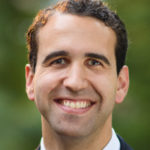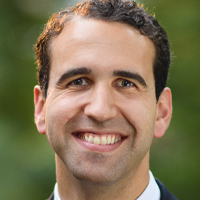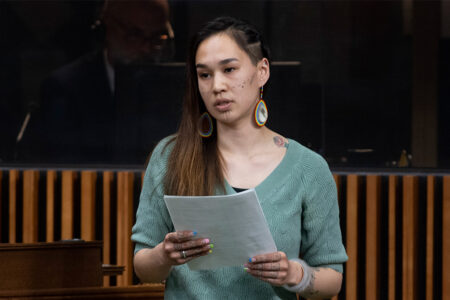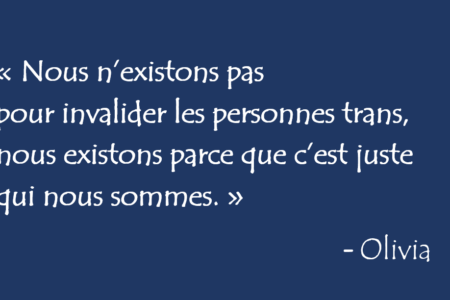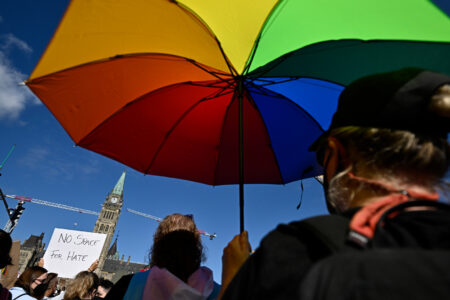
June has gained a reputation for yielding landmark court rulings on LGBTQ issues. This reputation is fitting: June is Pride Month. In June 2003, same-sex marriage made its debut in Canada by virtue of a court decision in Ontario. In June 2015, the Supreme Court of the United States ruled that same-sex marriage is guaranteed by the US Constitution.
June 2018 continued this trend – both above and below the 49th parallel.
South of the border, the US Supreme Court ruled in favour of a Colorado baker who was sanctioned by the state’s Civil Rights Commission after refusing, on religious grounds, to bake a wedding cake for a gay couple. The decisive factor cited in the Supreme Court’s ruling was the overt hostility and bias toward the baker’s religious views expressed by the commission’s ruling, which even likened them to support for slavery and the Holocaust. A few weeks later, the court sent a similar case involving a Washington state florist back to a lower court for reconsideration in light of the baker’s victory. However, the florist’s case does not feature the on-the-record hostility and bias towards religion present in the baker’s case – a distinction that may suggest a final ruling against the florist.
In Canada, the lengthy legal battle over the proposed law school at Trinity Western University, a private Christian university in British Columbia, came to an end on June 15. One of the clauses in Trinity’s code of conduct prohibits sexual intimacy outside of marriage – a union that Trinity believes can be formed only by one man and one woman. The Supreme Court of Canada upheld decisions in British Columbia and Ontario not to accredit Trinity’s law school on account of equality concerns raised by the clause for prospective LGBTQ law students and lawyers.
Another noteworthy case concerns a law in Alberta that prohibits schools from informing parents that their children have joined student clubs known as gay-straight alliances. These clubs claim to provide a safe space for LGBTQ students, but opponents say that they are ideological and interfere with the role of parents as primary educators of their children.
These court cases signal a pivotal moment in a struggle over whether certain views on sex and marriage can be freely expressed in the public square. It may soon be the case – if it is not already – that it is anathema to publicly profess that sex is only moral within traditional (opposite-sex) marriage. This belief ensnared Trinity Western University in litigation and blocked the nationwide accreditation of its law school. Manifesting the view that marriage is intrinsically between partners of the opposite sex brought the baker and florist to the US Supreme Court, even though these business owners generally serve LGBTQ persons – with the exception of selling them wedding products.
The Civil Marriage Act, which delivered same-sex marriage across Canada in 2005, says that it is “not against the public interest to hold and publicly express diverse views on marriage.”
That these views may be on the brink of inadmissibility in public life reveals the speed at which society is evolving in relation to these issues. Three years ago, Justice Anthony Kennedy of the US Supreme Court wrote the decision affirming a constitutional right to same-sex marriage in the United States. In the same decision, he noted that many who reject same-sex marriage do so “based on decent and honorable religious or philosophical premises.” The tenor of more recent rulings, such as the case of Trinity Western’s law school, does not convey the same charitable characterization of those religious and philosophical premises.
The Civil Marriage Act, which delivered same-sex marriage across Canada in 2005, says that it is “not against the public interest to hold and publicly express diverse views on marriage.” The majority judges in Trinity Western’s case made no mention of that statutory provision. Given that the case focused on what it means to govern the legal profession in the public interest, it is not outlandish to argue that the majority effectively deleted that provision from our law and rendered the belief in traditional marriage – and related views on sex – far less welcome in public life.
The public debate on these issues has been less than robust. Judicial decisions (rather than civic dialogue), and the labelling of certain views as progressive (and the implied labelling of contrary views as regressive), have done the heavy lifting to build the political consensus that is said now to exist on these issues. The decision of some individuals to be publicly silent – out of fear of negative social or professional consequences flowing from exposure as a proponent of regressive views – is also a factor.
The shameful reality is that members of the LGBTQ community still experience mistreatment and marginalization. The case of Bruce McArthur, accused of killing eight men linked to Toronto’s Gay Village, is a chilling reminder of that reality. Allegations that the sexual orientation of the victims affected the swiftness and intensity of the police investigation are also concerning. The work to cultivate basic respect toward LGBTQ persons in our society remains unfinished.
Progressive views on marriage and sex (as well as gender) may now be prevailing views, but a core commitment of liberal democracies is not only to tolerate but also to accommodate difference.
Yet as that work continues, it is unjust to label all persons who hold traditional views on marriage and sex as homophobic, transphobic, or hateful. As law professor and LGBTQ advocate Andrew Koppelman notes, people like the florist and baker are not “homophobic bigots who want to hurt gay people.” Be that as it may, the inevitable dignitary harm to LGBTQ persons when they are refused goods and services may ultimately defeat these legal claims.
Even so, we must not forget that being exposed to beliefs with which we disagree is a feature of a liberal democracy, not a sign of its malfunction. Stifling all expressions of those beliefs not only avoids the tensions that accompany diversity and tolerance, it also erodes these values. Diversity becomes inclusion of only the mainstream. Tolerance becomes mandatory acceptance of popular opinion – and even penalizing those who refuse to accept it.
Progressive views on marriage and sex (as well as gender) may now be prevailing views, but a core commitment of liberal democracies is not only to tolerate but also to accommodate difference. Shielding the unpopular view from the tyranny of the majority is a bedrock principle of a free and democratic society. As former chief justice Beverley McLachlin once stated on a different issue, the majority’s view “has no need of constitutional protection; it is tolerated in any event.”
The shifting sands of opinion on marriage, sex and gender are testing how liberal democracies understand their core values: freedom, equality, inclusion, tolerance and diversity. It would be a mistake to endorse versions of these values that render minorities more vulnerable to mistreatment by majorities. While the majority may not be troubled by the legislative and judicial defeats of persons and groups that hold unpopular views on these topics, the harm that these defeats may inflict on liberal democracy itself should concern us all, for a simple reason: we may find ourselves in the majority today, but who knows what tomorrow will bring.
Photo: Students walk past a cross on campus at Trinity Western University in Langley, B.C., on February 22, 2017. THE CANADIAN PRESS/Darryl Dyck
Do you have something to say about the article you just read? Be part of the Policy Options discussion, and send in your own submission. Here is a link on how to do it. | Souhaitez-vous réagir à cet article ? Joignez-vous aux débats d’Options politiques et soumettez-nous votre texte en suivant ces directives.




